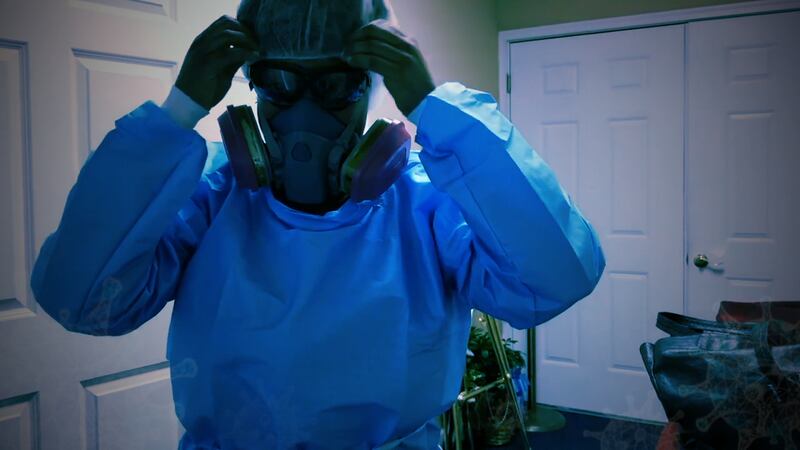ATLANTA — A metro Atlanta funeral home worker said he believes he contracted COVID-19 after picking up the body of a coronavirus victim from the hospital. But he said he wasn't told until days later.
Jarvis Wilson called Channel 2 Action News after seeing our investigation last week into funeral home workers having a hard time getting personal protective equipment, or PPE, putting them, their families and those they come into contact with at risk of catching the virus.
For Wilson, he is now on his long road to recovery. The 58-year-old grandfather almost died after spending most of April in the ICU after contracting COVID-19.
“When I got there (the hospital), I prayed to God. I said, ‘God, it’s in your hands,’” Wilson said.
He told Channel 2’s Michael Seiden that he contracted the virus after picking up an infected body from Emory University Hospital Midtown but said he couldn’t say for sure that’s where he got it.
[SPECIAL SECTION: The Coronavirus in Georgia]
“Back on March 17, I was at work at the funeral home, and we got a call," Wilson said. “When I got there, I did have gloves on, and I put a mask on. The nurse told me it was in the room. I went in and retrieved the body."
Wilson said he drove the body back to the Willie A. Watkins Funeral Home in the West End, where he began preparing it for the embalmer. Wilson told Seiden that he had no idea the body was infected until his supervisor called him days later.
“He said, ‘Jarvis, did you know the body you picked up had COVID-19?’ I said, ‘No, I didn’t!’ I said the hospital didn’t inform me about that. He said, 'We just found out, so you need to go get checked out.'"
RELATED STORIES:
- New form of COVID-19 treatment drug could be used to help children
- Attorneys say COVID-19 executive order could stop patients from suing over any malpractice
- As businesses reopen across Georgia, questions remain about safety of public restrooms
- Funeral workers say they should be considered essential workers, don’t have PPE to keep them safe
Wilson said he tried to get tested, but he couldn’t get one because he wasn't showing symptoms.
He developed a cough, fever and eventually had trouble breathing.
April 3, paramedics rushed him to the emergency room, where doctors made the quick decision to put him in a medically induced coma and placed him on a ventilator.
“They did an X-ray and found out I had double pneumonia in both my lungs,” Wilson said.
He also tested positive for COVID-19.
His daughter, Kalah Wilson, told Seiden that she feared he would die alone in the hospital.
“All the nurses were telling us if he were to make it out of this, he would be a miracle,” Wilson said.
“That must’ve been excruciating to not be able to be there by his side. What’s going through your mind and your family minds?” Seiden asked Wilson.
“Oh my goodness, there’s so much going through my mind because my father — he’s my hero," Wilson said.
But now, she is demanding answers about why the hospital didn't tell her father that he was dealing with a coronavirus victim.
“I feel like there’s procedures and protocols for reason. And if you’re supposed to have a checklist, it should be known and brought to funeral homes' attention," Wilson said.
Seiden contacted Emory University Hospital for a comment on this story. The hospital sent him a statement, saying:
“Emory Healthcare follows Centers for Disease Control and Prevention (CDC) guidelines for handling deceased patients with suspected or confirmed COVID-19.
“CDC guidance recommends the use of standard precautions, including good hand hygiene and use of personal protective equipment (PPE) — gloves, face masks, protective eye wear or face shields and protective clothing.
“Emory protocols include stringent infection prevention measures and proper labeling of deceased COVID-19 patients prior to transferring from the hospital.
“The risk of COVID-19 transmission from a deceased patient is thought to be low due to the lack of production of respiratory droplets via coughing or sneezing by the deceased person.”
Jarvis Wilson said for now he's focused on getting stronger every day. He's even getting back to his music, recently performing for hundreds of people on Facebook Live.
He said he’s grateful to be alive and also hopeful his story would prevent another person from becoming a victim.
© 2020 Cox Media Group








